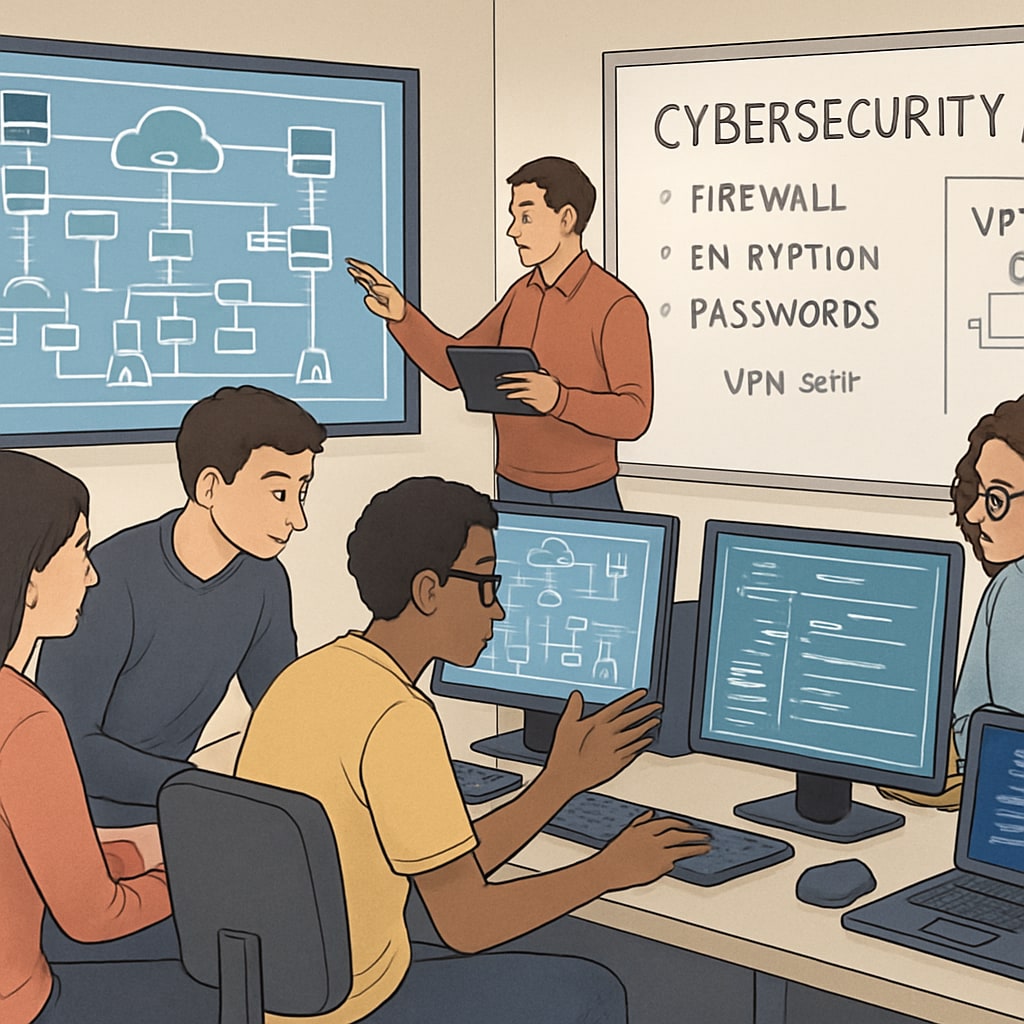In the digital age, the demand for cybersecurity professionals has skyrocketed, drawing attention to how university reputation influences career prospects in this field. As K12 students and their families plan future educational paths, understanding the balance between academic prestige and practical skill development becomes essential for success in cybersecurity careers.

Does University Reputation Guarantee Career Success in Cybersecurity?
University reputation often stands as a key factor in determining career prospects, but does it guarantee success in the fast-evolving field of cybersecurity? Prestigious universities frequently attract top-tier faculty, cutting-edge research opportunities, and strong alumni networks, all of which can provide students with a competitive edge. However, cybersecurity is a highly practical domain where hands-on skills, certifications, and real-world experience often outweigh academic prestige.
For example, institutions like MIT and Stanford are globally renowned for their computer science programs, including cybersecurity. Graduating from these schools may open doors to elite job opportunities. However, smaller universities or specialized institutions offering robust cybersecurity programs and industry connections can sometimes equip students with more targeted expertise.
Ultimately, while a university’s name may help secure interviews, personal skillset, certifications (such as CISSP or CEH), and performance during assessments often carry more weight in the hiring process.
Balancing Prestige and Practical Skills: Key Considerations for K12 Students
For K12 students aiming for cybersecurity careers, it’s crucial to evaluate universities based on multiple factors beyond reputation. Here are considerations that can help:
- Program Quality: Look for universities with dedicated cybersecurity tracks or degrees, accredited by organizations like the NSA or DHS.
- Industry Connections: Schools with partnerships in the cybersecurity industry can offer internships and job placement opportunities.
- Research Opportunities: Institutions with active research labs in cybersecurity allow students to tackle real-world problems and build expertise.
- Cost vs. Value: Prestigious universities may come with hefty price tags. Evaluate whether the investment aligns with long-term career goals.
For example, institutions such as Purdue University and the University of Maryland have specialized cybersecurity programs that are well-regarded despite not being Ivy League schools. These programs focus on practical skill-building and offer access to industry-relevant certifications, providing students with a strong foundation for the job market.

How Skills and Certifications Complement University Reputation
While university reputation can open initial doors, cybersecurity professionals are increasingly judged by their technical competencies. Certifications such as Certified Information Systems Security Professional (CISSP), Certified Ethical Hacker (CEH), and CompTIA Security+ validate expertise and are often prerequisites for high-paying roles.
Moreover, cybersecurity is a rapidly evolving field where staying up-to-date with emerging threats and technologies is critical. Employers value candidates who demonstrate adaptability and continuous learning, traits that are cultivated through internships, boot camps, and self-driven projects.
As a result, K12 students should focus on developing a portfolio of practical experiences alongside their choice of university. Engaging in hackathons, securing internships, or even contributing to open-source security tools can make a significant difference in employability.
Final Thoughts: Planning for Success in Cybersecurity Careers
University reputation, career prospects, and cybersecurity success are interconnected, but not in a one-size-fits-all way. While a prestigious university can provide advantages, practical skills and certifications often determine long-term career outcomes. K12 students should approach educational planning holistically, balancing academic reputation with opportunities for skill development and real-world application.
For parents and students, asking the right questions is essential: Does the university offer specialized cybersecurity programs? Are there opportunities for internships or industry certifications? How does the cost align with career goals? By weighing these factors, aspiring cybersecurity professionals can chart a path to success that is both strategic and rewarding.
Readability guidance: This article uses short paragraphs, active voice, and accessible language to ensure clarity. Lists summarize key points, while transition words help maintain flow. {{IMAGE:Two images placed strategically to complement the text}}.


